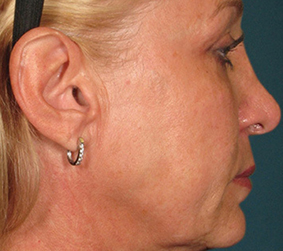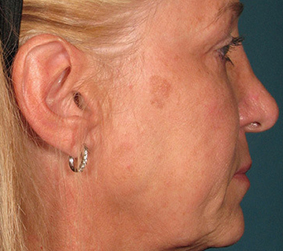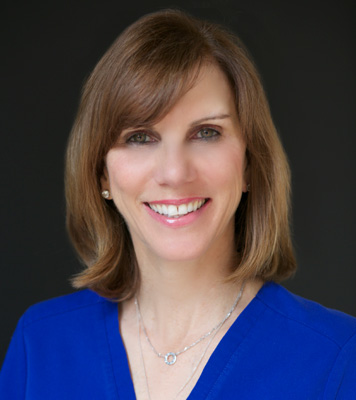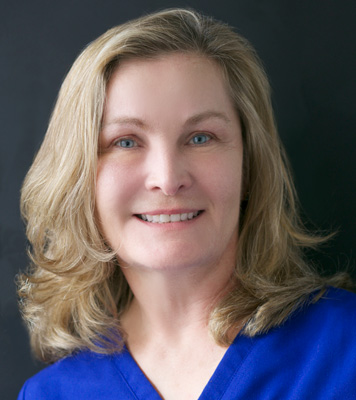Mohs Surgery
An Advanced Skin Cancer Treatment in the South Shore, MA
Mohs surgery at Weymouth's South Coast Dermatology in the South Shore represents the most effective localized skin cancer treatment available today, with a higher than 99 percent cure rate, thanks to its precision and thoroughness. While removing all cancer cells from a lesion is obviously the primary goal, this advanced medical dermatology treatment—officially known as Mohs micrographic surgery—is also prized for the way it preserves a maximum amount of healthy tissue.
Dr. Heidi Anderson-Dockter—offering Mohs surgery at South Coast Dermatology—has completed an intense fellowship and is a member of the American College of Mohs Surgery. Some dermatologists perform Mohs surgery without a fellowship, but patients are advised to seek a Mohs surgeon with official credentials. Patients who work with Dr. Anderson-Dockter can be assured that they are undergoing the most precise method of tumor removal available, minimizing the chance of cancerous re-growth while leaving the smallest scar. This makes it the treatment of choice for cancers of the face and other sensitive areas. In fact, this state-of-the-art skin cancer removal method is considered the gold standard in the industry today.
Send a message online today to set up a consultation to discuss Mohs micrographic surgery in Weymouth, all of the South Shore, and beyond at South Coast Dermatology. Call 781.335.9700 for more information.
What is Mohs Surgery?
A technique first developed in the 1930s, Mohs surgery involves a specially trained dermatologist painstakingly removing and scrutinizing thin layers of skin for evidence of cancer cells.
Skin cancers are not two-dimensional spots that sit on the surface of the skin, but can extend downward into tissue below, as well as spread beyond their obviously visible borders. In some cases, Mohs surgery is a better alternative than a surgical removal, as it is generally reserved for cosmetically sensitive areas.
Mohs surgery requires the careful removal of a small amount of tissue at the margins of a skin cancer lesion. This tissue is then examined under a microscope so the dermatologist can determine whether cancer cells are present. If cancer cells are found, another layer is taken either wider or deeper. This continues until no cancer cells are identified in any tissue removed from the border of a lesion—side to side, as well as underneath.
The close observation of every layer is intended to ensure all cancer cells associated with the localized cancer have been removed. Because excision stops once no more cancer is detected, the skin is impacted only as much as it needs to be. There is no "extra" removed just in case, so scars resulting from Mohs surgery are minimal compared to other surgical excision methods.
What To Know Before Your Mohs Surgery
What Cancers Can Be Treated With Mohs Surgery?
Basal Cell Carcinoma (BCC) is the most common skin cancer and affects one out of every five Americans. It is most often caused by overexposure to the sun. If diagnosed early through a biopsy, BCC can be treated easily by a few different methods, such as topical creams, curettage-electrodessication, cryosurgery, or, if necessary, surgical removal. Treatments vary and are best determined by a qualified dermatologist. Because BCC is localized, patients dealing with this type of cancer may be ideal candidates for Mohs surgery.
Squamous Cell Carcinoma (SCC) is the second most common type of skin cancer. Most cases are caused by overexposure to the sun, though some SCCs can occur spontaneously or are inherited. Most are not serious if identified and treated early. When in an advanced stage, SCC can be harder to treat and can spread to lymph nodes or other organs. It may even become life threatening. With early detection from a biopsy by a qualified dermatologist, SCC can be treated as easily as by application of topical medicine, surgical excision and/or other treatments determined by your dermatologist. Mohs surgery can be a very effective treatment for SCC in its earlier stages.
Due to a range of factors, Mohs surgery is not typically recommended for cases of melanoma—a deadly form of skin cancer that can quickly grow and spread to other parts of the body.
What Treatments for Skin Cancer Besides Mohs Surgery Are Available in the South Shore Area?
First of all, prevention is the best tactic in the fight against skin cancer, so the South Coast Dermatology team encourages everyone to regularly wear sunscreen and avoid UV exposure as much as possible. The doctors also encourage men and women in the Boston and South Shore of Massachusetts area—and beyond—to perform regular self-checks on their skin to watch for suspicious moles and other lesions. An annual check-up with a dermatologist is also important for catching cancers as early as possible.
Aside from Mohs surgery, skin cancer treatments include surgical excision as well as cryosurgery to freeze off tumors, combining electrical currents and a special scraping method to kill and remove cancer cells, medicated creams, and radiation therapy. The ideal treatment for each patient depends on the type of cancer, its location, its progression, and other variables that are best discussed during a consultation.
Discover what Mohs surgery can do for you in the South Shore at South Coast Dermatology. Set up a consultation by sending a message online. Call 781.335.9700 for more information.


























